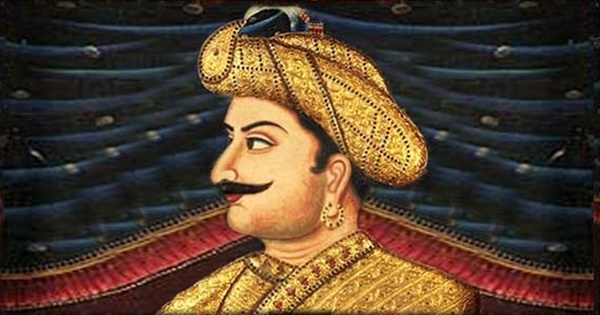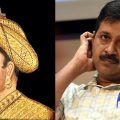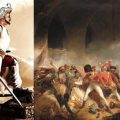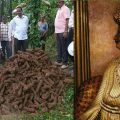Financial and Cultural Destruction of Mysorean Hindus by so called Secular Tipu Sultan

There are people who proclaim to the world that Tipu Sultan’s rule was fair and progressive in his own state of Mysore. M.A. Gopal Rao, a Mysorean, stated in one of his articles: ‘In a deliberately designed taxation scheme, the religious prejudice of Tipu Sultan became quite clear. His co- religionists, Muslims, were exempted from house tax, commodity tax and also the levy on other items of household use. Those who were converted to Muhammadanism, were also given similar tax exemptions. He had even made provisions for the education of their children. Tipu Sultan discontinued the practice of appointing Hindus in different administrative and military jobs as practised by his father, Hyder Ali Khan, in the past.
He had deep hatred towards all non-Muslims. During the entire period of sixteen years of his regime, Purnaiyya was the only Hindu who had adorned the post of Dewan or minister under Tipu Sultan. In 1797 (two years before his death) among the 65 senior Government posts, not even a single Hindu was retained. All the Mustadirs were also Muslims. Among the 26 civil and military officers captured by the British in 1792 there were only 6 non-Muslims. In 1789, when the Nizam of Hyderabad and other Muslim rulers decided that only Muslims would be appointed henceforth in all Government posts, Tipu Sultan also adopted the same policy in his Mysore State. Just because they were Muslims, even those who were illiterate and inefficient, were also appointed to important Government posts.
Even for getting promotions, one still had to be a Muslim under Tipu Sultan’s regime. Considering the interest and convenience of only Muslim officers, all the records relating to tax revenue, were ordered to be written in Persian rather than in Marathi and Kannada as followed earlier. He even tried to make Persian the State language in place of Kannada. In the end, all the Government posts were filled by lazy and irresponsible Muslims. As a consequence the people had to suffer a great deal because of those fun-seeking and irresponsible Muslim officers. The Muslim officers, occupying important posts at all levels, were all dishonest and unreliable persons. Even when people complained to him with evidences against those officers, Tipu Sultan did not care to inquire about the complaints lodged.”
Govinda Pillai says in his famous book, History of Literature; “During Malayalam Era 965 corresponding to 1789- 90, Tipu Sultan crossed over to Malabar with an army of uncivilised barbarians. With a sort of fanatical love for Islamic faith, he destroyed many Hindu temples and Christian churches which were the custodians of precious wealth and religious traditions. Besides, Tipu Sultan abducted hundreds of people and forcibly circumcised and converted them to Islam – an act which was considered by them as more than death.”
A small army of 2000 Nairs of Kadathanadu resisted the invasion of the huge army of Tipu Sultan from a fortress in Kuttipuram for a few weeks. They were reduced to starvation and death. Tipu Sultan entered the fort and offered to spare their lives, provided they accepted conversion to Islam. The unfortunate lot of 2000 Nairs were then forced to eat beef after being converted to Islamic faith, at the end of usual religious ritual of mass circumcision. All the members of one branch of Parappanad Royal Family were forcibly converted to Muhammadan faith except for one or two who escaped from the clutches of Tipu Sultan’s army. Similarly, one Thiruppad belonging to Nilamboor Royal Family was also forcibly abducted and converted to Islam. Thereafter, it was reported that further conversions of Hindus were attempted through those converts. In the end, when the Kolathiri Raja surrendered and paid tribute, Tipu Sultan got him treacherously killed without any specific reason, dragged his dead body tied to the feet of an elephant through the streets, and finally hanged him from a tree-top to show his Islamic contempt for Hindu Rajas.
Gopal Rao had written all these on the basis of the writings of Tipu’s own son, Ghulam Muhammad, and Muslim historians like Kirmani. Tipu Sultan could not even tolerate the Hindu names of places. Therefore, Mangalapuri (Mangalore) was changed to Jalalabad, Cannanore (Kanwapuram) to Kusanabad, Bepur (Vaippura) to Sultanpatanam or Faruqui, Mysore to Nazarabad, Dharwar to Quarshed-Sawad, Gooty to Faiz-Hissar, Ratnagiri to Mustafabad, Dindigul to Khaliqabad, and Calicut (Kozhikode) to Islamabad. It was after the death of Tipu Sultan that the local people reverted to old names.
Primary Source: Late PCN Raja’s book Religious Intolerance of Tipu Sultan.
Visit Indian History Real Truth Facebook group to view related posts. This article is part of ‘JEWELS OF BHARATAM SERIES [TM]‘ by the author.
Disclaimer: The views expressed here are solely of the author. My India My Glory does not assume any responsibility for the validity or information shared in this article by the author.
Featured image courtesy: ndtv.com.
More Posts:
- Nalanda: 9 Million Books Burnt in 1193 by Bakhtiyar Khilji.
- Aryan Migration Theory: Fraud and Confusion Created to Justify British Rule in India
- Most Authentic History of Attacks on India from 636 AD: Hindus Killed in Millions.






